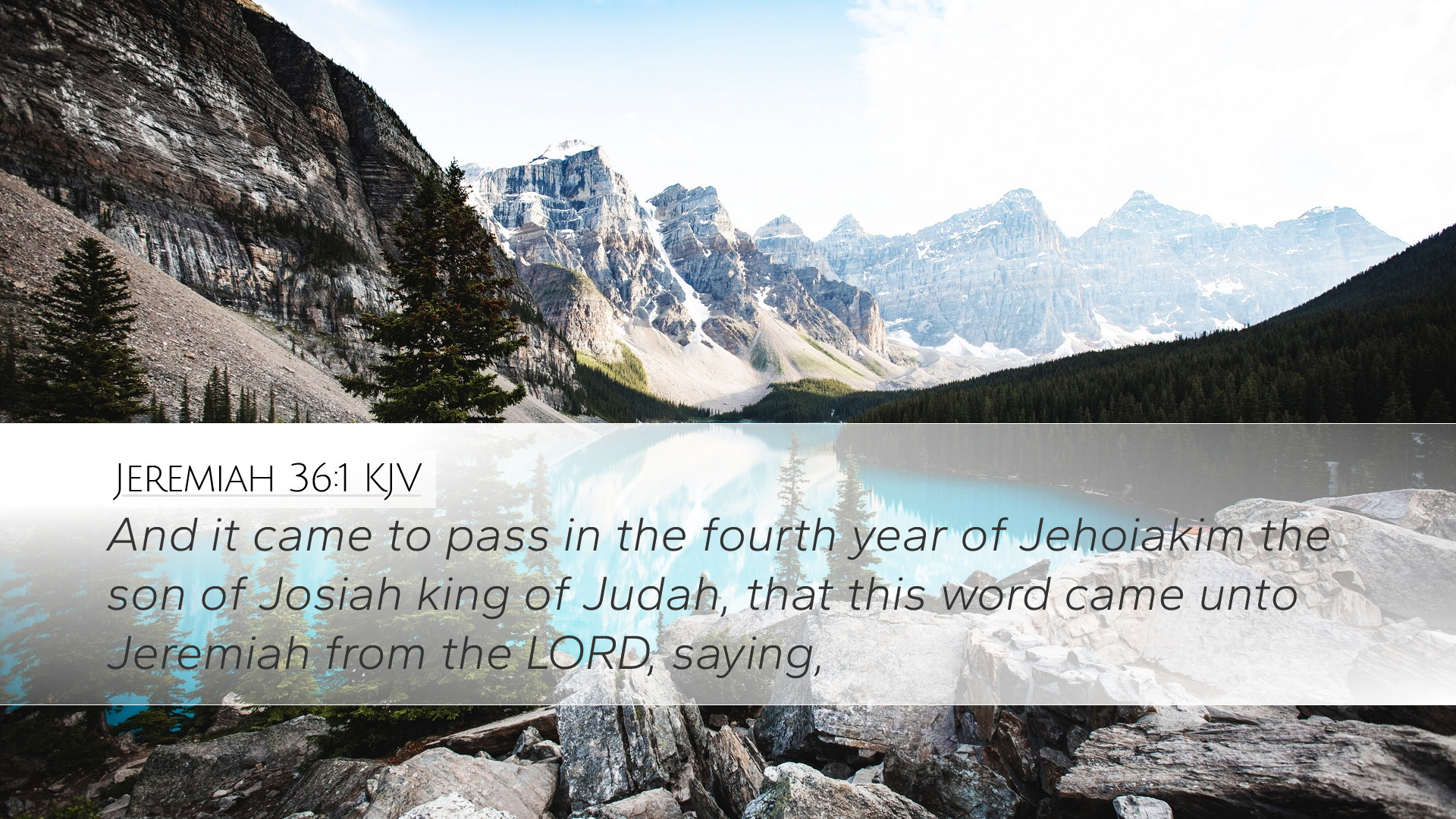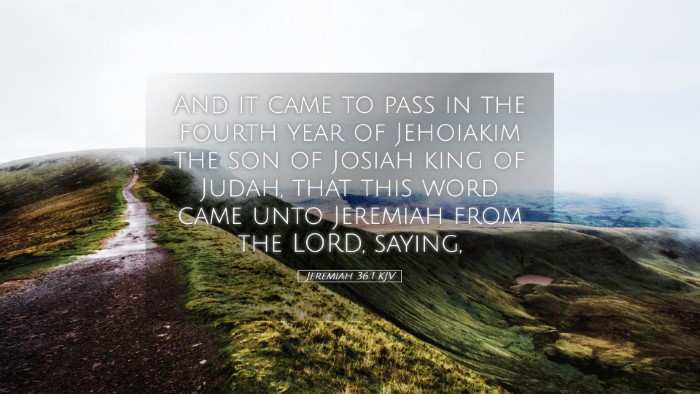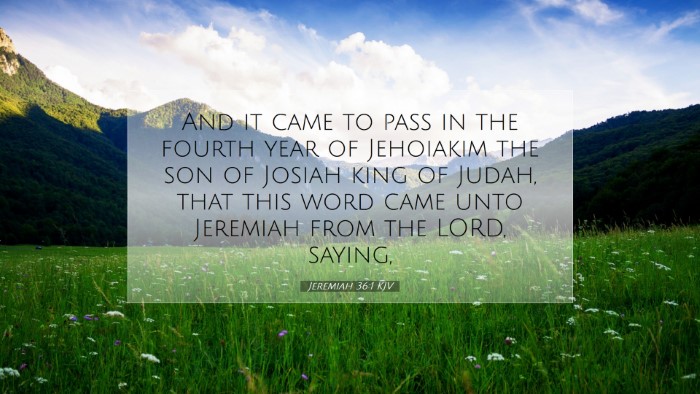Commentary on Jeremiah 36:1
Context and Historical Background
The Book of Jeremiah is known for its deep theological insights and historical significance. Jeremiah, a prophet during the final years of the Kingdom of Judah, received divine revelations that compelled him to warn the people of impending disaster due to their unfaithfulness. Jeremiah 36:1 sets the stage for a pivotal moment in the prophetic narrative as it details God's directive to the prophet regarding the writing of a scroll.
Text of Jeremiah 36:1
“And it came to pass in the fourth year of Jehoiakim the son of Josiah king of Judah, that the word of the LORD came unto Jeremiah from the LORD, saying,” (KJV).
Exegesis of the Text
This verse marks a specific time in history—the fourth year of King Jehoiakim. The mention of the king’s reign is significant, as it contextualizes the prophetic message during a time of political instability and spiritual decay in Judah.
Significance of Timeframe
The significance of "the fourth year" lies in its backdrop of historical events. Jehoiakim was known for his idolatry and oppression, aligning with Babylonian powers. This sets the stage for Jeremiah's message, emphasizing the urgency of the call to repentance.
Divine Communication
The phrase "the word of the LORD came unto Jeremiah" illustrates God's active engagement with His prophet. This divine communication is not merely for personal edification but for the admonishment and correction of the nation. It highlights the prophetic office's role as a mediator between God and His people.
Theological Insights
Jeremiah 36:1 serves as a lens through which we can explore several theological themes.
- The Nature of Prophecy: Prophecy is portrayed not as a vague interpretation of the future but as a specific message grounded in the historical context (commentaries by Matthew Henry).
- Judgment and Mercy: God's message to Jeremiah is inherently one of warning, illustrating the balance between divine judgment and mercy (Adam Clarke).
- The Importance of the Written Word: The command to write down these words underscores the significance of scripture as a lasting testament to God's covenant with His people (Albert Barnes).
Prophetic Responsibility
Jeremiah’s role as a prophet is paramount in understanding this verse. This calling entails several responsibilities:
- Faithfulness in Delivering God’s Message: Jeremiah is tasked with relaying a message that may not be well received, demonstrating the uncompromising nature of divine truth.
- The Role of Scribes: The act of writing signifies the legitimacy and durability of God’s message, serving to remind the future generations (Barnes).
- The Consequences of Rejection: The warnings given to Judah reflect the moral and spiritual consequences of rejecting divine counsel, a theme echoed throughout Jeremiah’s ministry.
Application to Contemporary Believers
For pastors, students, theologians, and Bible scholars, the implications of Jeremiah 36:1 extend far beyond its historical context:
- Emphasis on Obedience: Like Jeremiah, modern believers are called to heed God’s word and convey His messages faithfully, regardless of societal pushback.
- Value of Scripture: The importance of preserving and sharing the written word remains vital. It serves as a guide and a declaration of God’s intentions (Clarke).
- Urgency of God’s Message: The urgency felt by Jeremiah should resonate today, prompting believers to act and share the gospel fervently in a world that often disregards divine truths.
Conclusion
Jeremiah 36:1 encapsulates crucial themes of divine communication, prophetic duty, and the importance of scripture. The insights from public domain commentaries illuminate the weight of this verse for both ancient Israel and modern readers. Understanding the historical and theological implications encourages a deeper engagement with scripture and a commitment to faithfully proclaiming God’s message in contemporary society.


